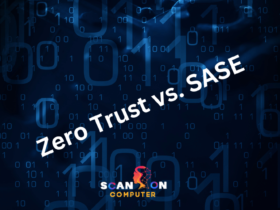Why Cybersecurity Training Is Important For Employers? – Cybersecurity refers to the practice of protecting computer networks, software programs and information systems connected to the internet from threats such as phishing scams, malware attacks, identity theft, data breaches and financial losses.
Since users aren’t cybersecurity experts, training must be easily digestible and presented in an engaging way in order to be effective at knowledge retention. Long, infrequent sessions do not work effectively in this regard.
Increased Productivity
Cybersecurity training will equip your employees with the confidence and knowledge needed to protect the company against potential threats, as well as being better prepared if a cyberattack does take place, saving the company money long term. A data breach or cyberattack can result in steep financial losses for companies, such as fines, lost business opportunities, brand damage and irreparable brand damage; such events have cost many millions over time and this is especially true of small businesses which may find it hard to recover from its costs associated with it3.
Employees are the weakest link when it comes to cybersecurity; human error accounts for roughly 95% of cybersecurity breaches4. Therefore, security awareness training must become part of your employees’ working lives in order to combat breaches in this way.
A good cybersecurity awareness training program should cover various topics from basic to advanced. For instance, it will teach employees to recognize phishing emails and signs of malware; additionally it provides them with tools they can use daily to stay safe online. Finally, such training encourages vigilance and responsibility in the workplace to promote a culture of safety.
Though cybersecurity should be a top priority in your employees’ jobs, it’s often forgotten. This is a major mistake as an employee’s failure to recognize a cyberattack may have serious repercussions outside the workplace – for instance, identity theft attacks among remote workers often negatively affect credit scores and finances resulting in making unwise mortgage applications, debt pay-off decisions, etc.
Make your cybersecurity training programs more effective by employing various modes of delivery. For instance, send out weekly email updates with key information or host webinars covering topics like ransomware or email phishing; such presentations provide a convenient way of relaying key messages without your employees having to read pages of text.
Reduced Risk of Data Breach
Cybersecurity attacks can be devastating to a company, resulting in both financial losses and brand erosion. While companies invest heavily in firewalls and office technology to defend against such attacks, they should not forget their most vulnerable asset: employees. According to a 2020 report, 88% of data breaches were caused by human error with 43% making mistakes that compromised cybersecurity at work – something employers can mitigate by providing security awareness training sessions to all employees.
Basic cybersecurity training (also referred to as security awareness training) teaches workers basic security hygiene practices and recognize common cyber threats. It’s typically provided through online learning experiences; however, other delivery methods may also be available. The aim of such training is to reduce risks posed by phishing attacks, social engineering practices, and unsafe browsing behaviors – while increasing employee knowledge on these subjects.
Training should include updates that address current trends and threats to reduce the chances of data breaches, keeping your workforce aware of new risks as they emerge and how best to prevent them. Establishing a culture of cybersecurity through incorporation into company policies and procedures is also key part of this training.
Your staff should also be trained on how to recognize potential breaches quickly, which allows you to reduce the impact of cyber attacks while safeguarding customers’ privacy, business information, and financial resources.
Training employees on cybersecurity practices can reduce your risk of legal action from customers who are affected by data breaches. This is particularly relevant when working with sensitive information, such as medical records or credit card numbers.
The cybersecurity industry is an ever-expanding field, and skilled cybersecurity workers are in high demand. While a college degree isn’t necessary for most positions, employers prefer candidates with cybersecurity certification or verifiable education in this area – which makes finding jobs much simpler for newcomers while giving employers access to qualified candidates who can contribute instantly. This flexible hiring policy also enables new cybersecurity workers to secure work more easily while giving employers access to specialists that can immediately make a contribution.
Increased Job Satisfaction
Cyber security training can be an invaluable way to boost job satisfaction and give employees a sense of responsibility and pride in their work. Employees more aware of cybersecurity threats are more likely to take steps to defend against potential attacks on your company, while teaching your workers that their actions have an effect on people outside the workplace – an invaluable lesson they will be able to take with them when working from home or when traveling.
Cyberattacks are increasing, with businesses increasingly reliant on remote workers putting themselves at greater risk of data breach. Human error accounts for 95% of data breaches; therefore it’s imperative that all employees undergo cybersecurity training in order to detect phishing emails or social engineering scams or handle a ransomware attack should it arise.
Cyberattacks can damage companies’ reputations, leading to fines or lawsuits. Therefore, having an effective cybersecurity strategy has never been more essential. Training should include both formal content as well as interactive elements to make learning comfortable for employees – increasing their chance of success in turn.
Training should cover all aspects of cybersecurity, including privacy policies and compliance regulations. This training is especially essential for employees handling sensitive information. Furthermore, local regulations differ greatly regarding how businesses may use their data.
Training should be made as effective as possible; unfortunately, many security awareness campaigns fail because they don’t address changing employee behaviors directly. Effective training includes recommendations that are attainable given each employee’s skill set, described in language they can comprehend, and include pointers to helpful resources.
Higher Salary
Demand for cybersecurity professionals is rising quickly and salaries are increasing accordingly, which is great news for job seekers; however, this competition also means more competition for jobs in this field. Therefore, employers should provide all of their employees with cyber training as this will ensure everyone has a cohesive strategy to prevent data breaches and stay safe online.
Businesses should offer cyber training not only to their own employees, but also those interested in entering the field. This will allow businesses to attract talented individuals into the industry while filling open roles quickly. Bootcamps and postgraduate programs can offer useful cyber training courses.
Attending these courses will give individuals the skills needed to become cybersecurity professionals and advance in their careers. Furthermore, these courses can serve as preparation for various cyber security certification exams available – exams that may prove challenging but are important components of the cybersecurity career path.
With technology’s increasing reliance, cybersecurity skills are becoming more valuable. A recent study from Burning Glass Technologies demonstrated this fact by showing that cybersecurity professionals could expect a pay boost of up to $25,000 each year after receiving certification.
The National Cybersecurity Workforce Strategy (NCWES) has pledged its efforts towards upskilling American workers and providing access to high-paying cybersecurity jobs available today. The NCWES has four key commitments that support its goals:
One of these commitments involves working with nonprofit organizations to increase access to training and resources, including partnerships that provide specialized training directly. One such partnership is the SAP Cyber Security Early Talent program which assists high-performing early career professionals develop the necessary competencies for cyber careers as part of an effort to close the cybersecurity skills gap by 2025.













